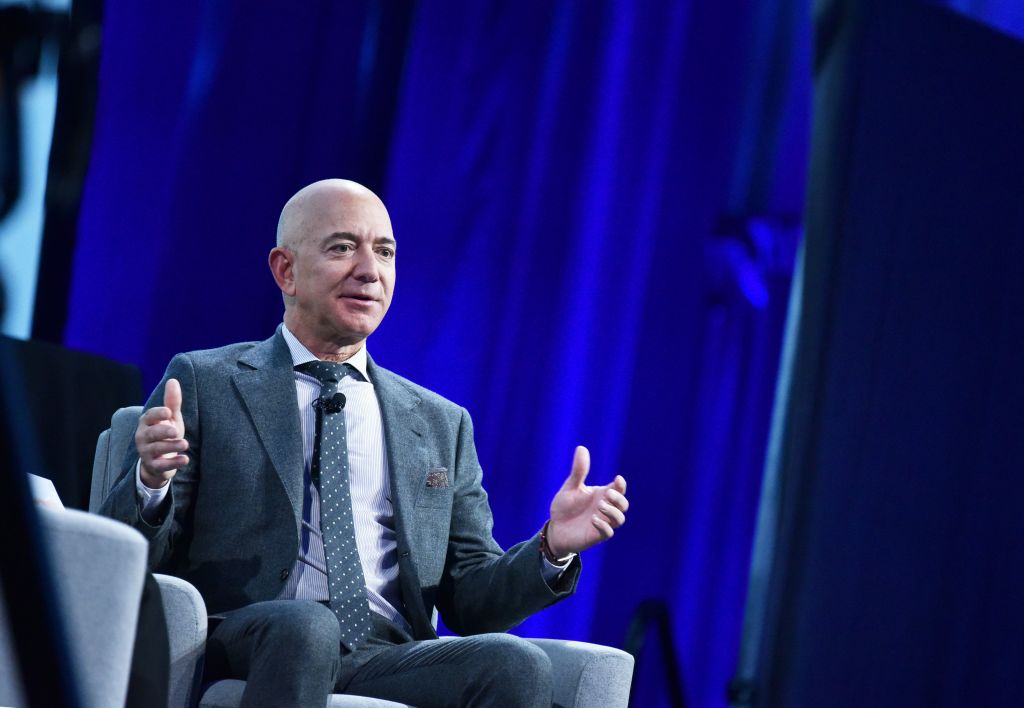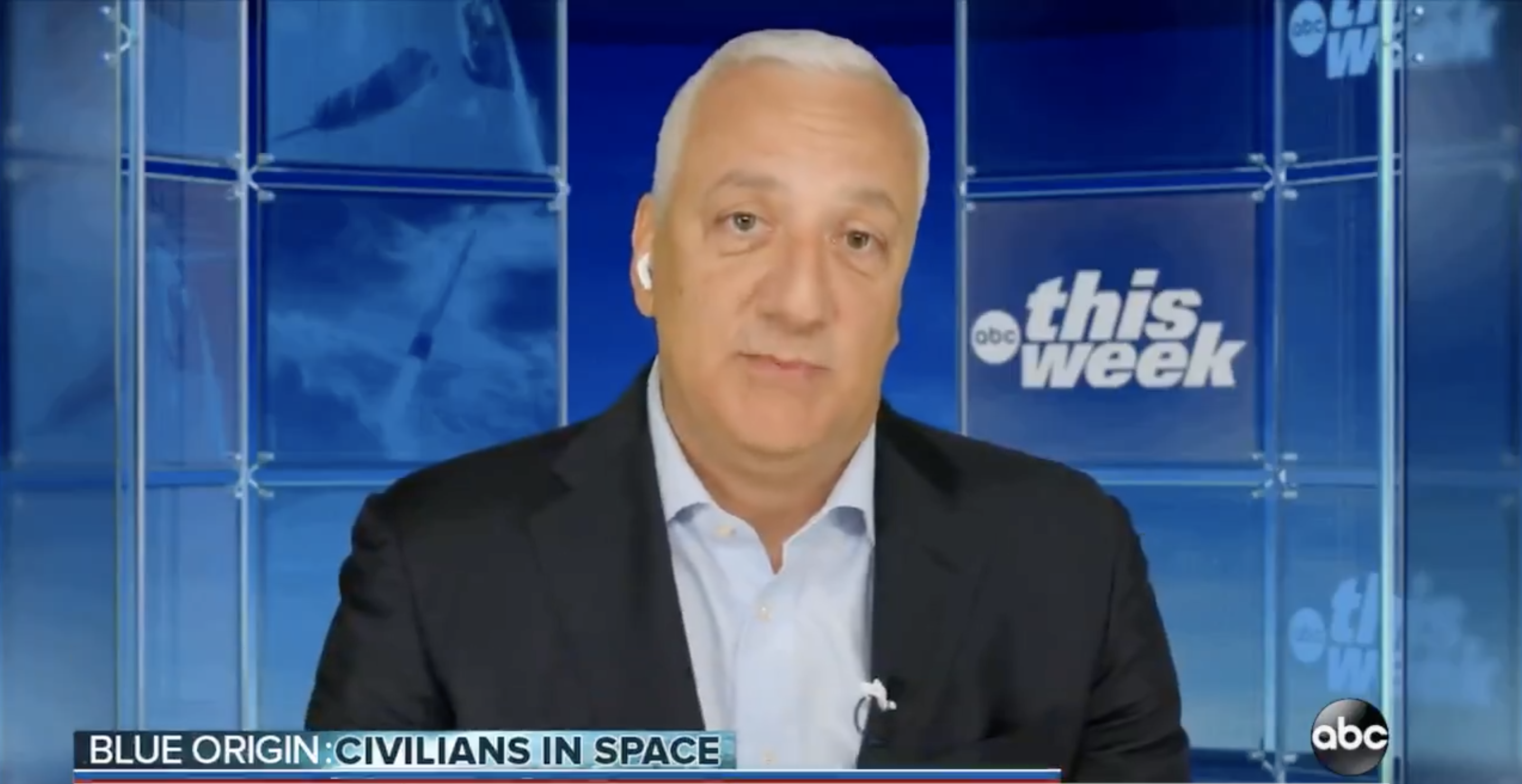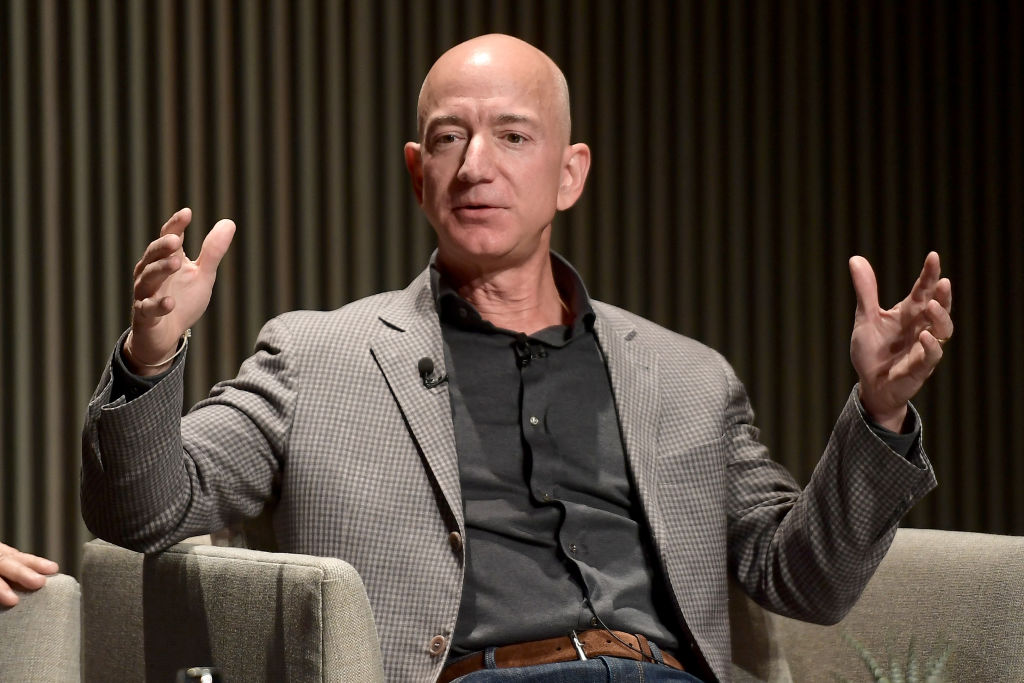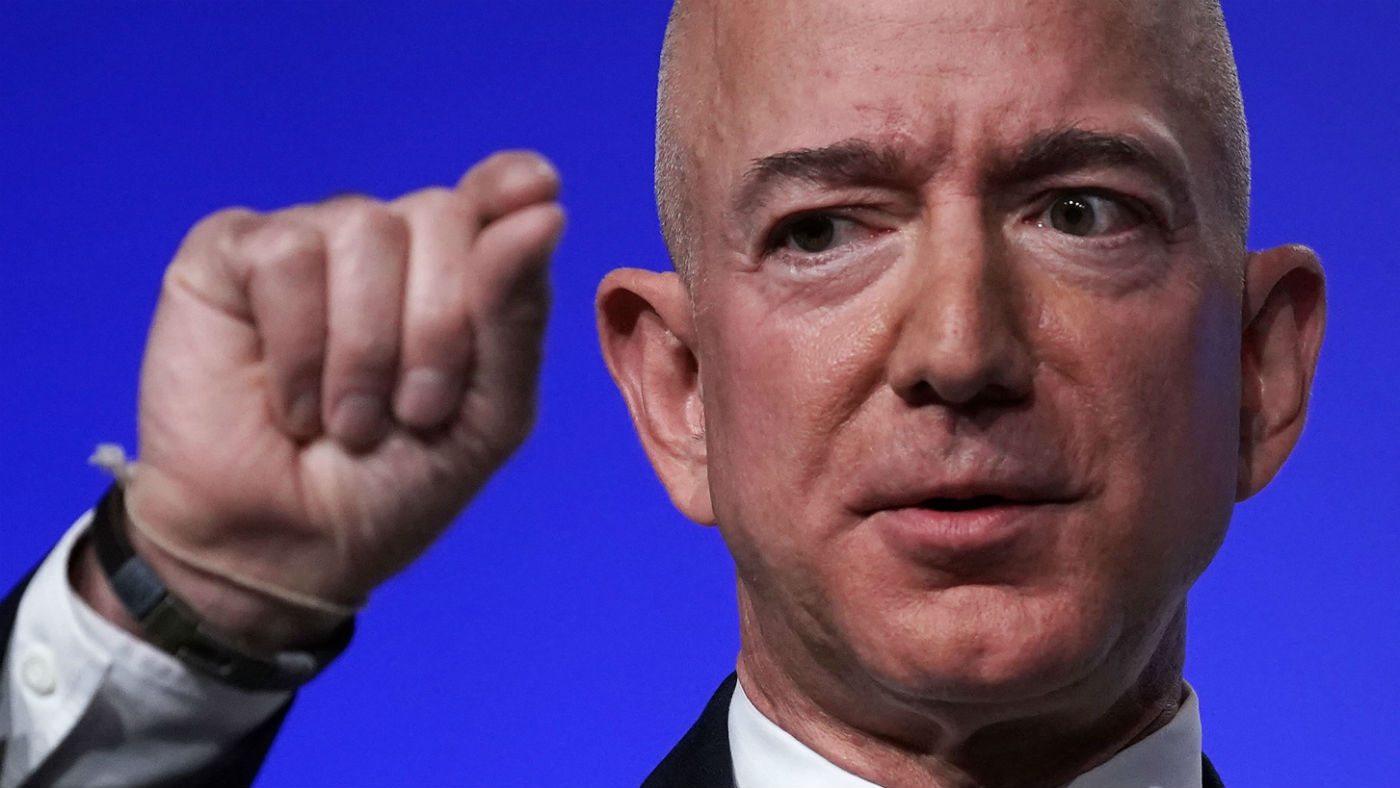The billionaire-led quest for immortality
What if Jeff Bezos or Peter Thiel could live forever?


A free daily email with the biggest news stories of the day – and the best features from TheWeek.com
You are now subscribed
Your newsletter sign-up was successful
What if we told you it was possible to live forever? Or, if not forever, much longer than you can now? While a mythological anti-aging elixir has yet to materialize, millionaires and billionaires have, for years, been pouring not-insignificant amounts of their massive fortunes into immortality research, a science that hopes to, in simple terms, find a cure for aging.
Who is doing this?
Big names include Amazon founder Jeff Bezos, Google founders Larry Page and Sergey Brin, PayPal co-founder Peter Thiel and Oracle’s Larry Ellison. Bryan Johnson, an entrepreneur and venture capitalist worth millions, has also made waves for his rather shocking anti-aging efforts, which include temporary blood-plasma donations from his teenage son and penis shockwave therapy.
What do these projects look like?
Bezos semi-recently invested in Altos Labs, an anti-aging start-up focused on cell revitalization technology. And back in 2013, Google’s Page announced Calico Labs, another longevity project dedicated to exploring the causes of aging and how to fight them. Both Thiel and Ellison have each donated millions of their fortunes to immortality research, and Johnson has meanwhile launched Blueprint, a flashy wellness experiment intended to explore “the future of being human,” according to its website. For that venture, “Johnson takes more than 100 supplements a day, submits himself to constant medical assessments, keeps to a strict diet that prohibits any food after 11 a.m.,” and “goes to bed at 8:30 p.m.,” Rolling Stone reported. He has even “built an algorithm that takes better care of me [than] I can myself, it has exceeded my abilities,” he said, “My mind observes — my mind no longer decides.”
The Week
Escape your echo chamber. Get the facts behind the news, plus analysis from multiple perspectives.

Sign up for The Week's Free Newsletters
From our morning news briefing to a weekly Good News Newsletter, get the best of The Week delivered directly to your inbox.
From our morning news briefing to a weekly Good News Newsletter, get the best of The Week delivered directly to your inbox.
Indeed, artificial intelligence could factor into immortality research in a number of ways. “The chief argument is that we will be able to undertake simulations of biological functions that today we cannot sufficiently perform with contemporary computing and AI,” artificial intelligence expert Lance Eliot wrote in Forbes. Researchers can then use those simulations to investigate ways to prolong human life without needing to involve real people in the process. “Ultimately, we won’t need to test [medicine] on humans,” AI pioneer Ray Kurzweil said in an interview in 2022, per Eliot. “We will be able to test on a million simulated humans which will be much better than testing on a few hundred real humans.”
Why are the wealthy so interested in this research?
Death “is the next problem waiting to be solved,” BBC reporter Aleks Krotoski told The Guardian. “Rather than finding something that is going to give us eternal life, [these billionaires] believe” that unlocking this gift for humanity will “provide glory to those who deliver it.”
Also, on a more functional level, private funding (rather than that provided by the government) can actually benefit researchers in the long term, seeing as they aren’t beholden to a certain timeline or the pressure of immediate results. Even if the billionaires behind these projects have something to gain (i.e. eternal life), they can “afford to make a lot of mistakes” in the research process, Christopher Wareham, a scientist who studies the ethics of aging, told the Financial Times. Governments, on the other hand, cannot.
Will the masses be able to partake?
That seems to be the goal (although we’ll see what actually happens). “If this is going to be a gazillion-dollars’ worth of treatment for a handful of people, it is of no interest,” Mehmood Khan, CEO of Hevolution Foundation, a Saudi-backed longevity research project, told Financial Times. He said the org is only interested in work that can be “democratized,” and hopes to “extend healthy lifespan for the benefit of all humanity,” not just the rich.
A free daily email with the biggest news stories of the day – and the best features from TheWeek.com
How long will this take?
We could still be a long ways off, so don’t hold your breath. That said, there are some promising projects in the works. Consider “senolytics,” or the study of treatments that target the senescent cells that “accumulate in our bodies as we age,” Wired wrote in early 2023. “These cells seem to drive the aging process — from causing cancers to neurodegeneration — and, conversely, removing them seems to slow it down, and perhaps even reverse it.” Companies like Unity Biotechnology (which boasts Bezos as an investor) are currently investigating how to target these pesky entities and use senolytic drugs against a host of diseases. Other methods “currently in human trials include Proclara Biosciences’ protein GAIM, which clears up sticky ‘amyloid’ proteins, or Verve Therapeutics’ gene therapy to reduce cholesterol by modifying a gene called PCSK9,” Wired went on.
“Extending max lifespan significantly in the near-term seems unlikely to me,” Cambridge University’s Sean Ó hÉigeartaigh told CNBC in 2021. “[B]ut identifying and arresting aging-related factors that increase preponderance and severity of age-related conditions is more plausible.”
Are there ethics concerns here?
Certainly. If the rich and powerful live forever, or even longer than they can now, their wealth and influence would only continue to amass. "Suppose, for example, we had a kind of vaccine for the pandemic of age," Wareham, the bioethicist, told Financial Times. "This is going to potentially exacerbate all the kinds of existing inequalities that we have … The longer you're around, the more your wealth compounds, and the wealthier you are, the more political influence you have."
Not to mention that, in many cases, the only thing that topples an autocratic regime or brings about genuine social change is … well, death. "It is important for us to die because most of the time people don't change their mind, they just die," billionaire Elon Musk, who has been openly wary of immortality technology, said in 2021, per Futurism. "If you live forever, we might become a very ossified society where new ideas cannot succeed."
And of course, there is the ever-present threat of climate change, which could only grow worse if we resource-hungry humans stick around longer and longer. “The challenges of our unsustainable resource footprints will need to be addressed long before science solves aging,” Ó hÉigeartaigh added. “We have many more pressing things to worry about than the risks of life extension, such as climate change in the coming century.”
Brigid Kennedy worked at The Week from 2021 to 2023 as a staff writer, junior editor and then story editor, with an interest in U.S. politics, the economy and the music industry.
-
 Political cartoons for February 15
Political cartoons for February 15Cartoons Sunday's political cartoons include political ventriloquism, Europe in the middle, and more
-
 The broken water companies failing England and Wales
The broken water companies failing England and WalesExplainer With rising bills, deteriorating river health and a lack of investment, regulators face an uphill battle to stabilise the industry
-
 A thrilling foodie city in northern Japan
A thrilling foodie city in northern JapanThe Week Recommends The food scene here is ‘unspoilt’ and ‘fun’
-
 Blue Origin launches Mars probes in NASA debut
Blue Origin launches Mars probes in NASA debutSpeed Read The New Glenn rocket is carrying small twin spacecraft toward Mars as part of NASA’s Escapade mission
-
 Katy Perry, Gayle King visit space on Bezos rocket
Katy Perry, Gayle King visit space on Bezos rocketSpeed Read Six well-known women went into lower orbit for 11 minutes
-
 Blue Origin conducts 1st test flight of massive rocket
Blue Origin conducts 1st test flight of massive rocketSpeed Read The Jeff Bezos-founded space company conducted a mostly successful test flight of its 320-foot-tall New Glenn rocket
-
 Watch Jeff Bezos launch himself into space
Watch Jeff Bezos launch himself into spaceSpeed Read
-
 Former NASA astronaut: Private space travel clears way for 'things we can't even imagine'
Former NASA astronaut: Private space travel clears way for 'things we can't even imagine'Speed Read
-
 Jeff Bezos is heading to space, and he's bringing his brother
Jeff Bezos is heading to space, and he's bringing his brotherSpeed Read
-
 Jeff Bezos wants to take crews to Moon by 2024
Jeff Bezos wants to take crews to Moon by 2024Speed Read Amazon CEO has often spoken of desire to colonise outer space
